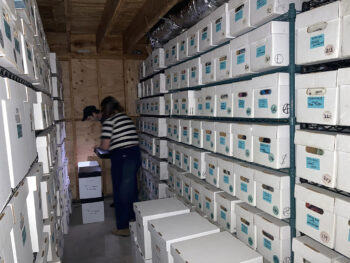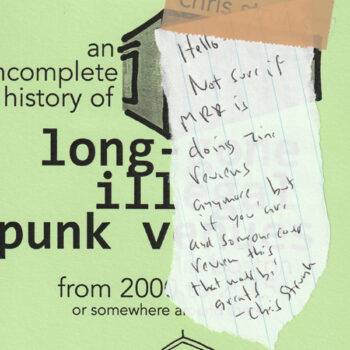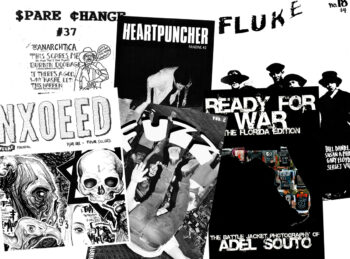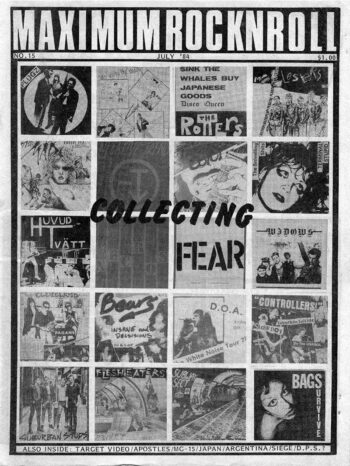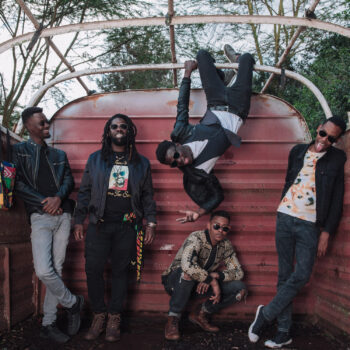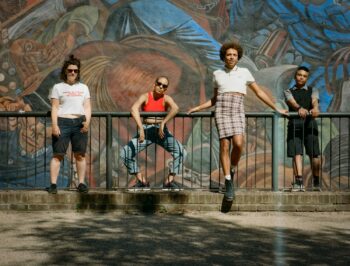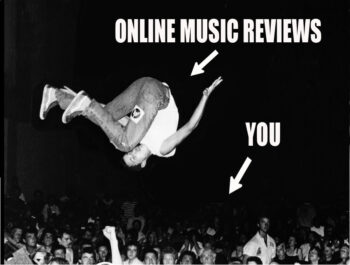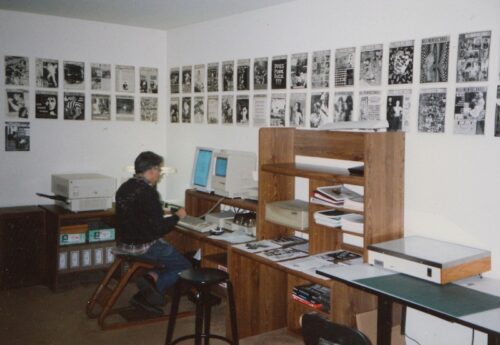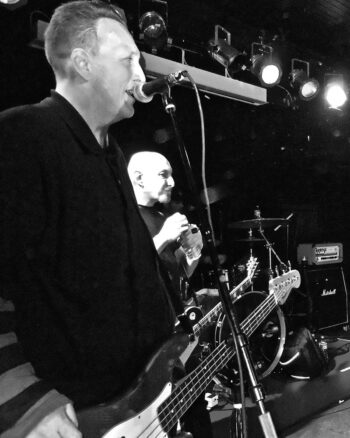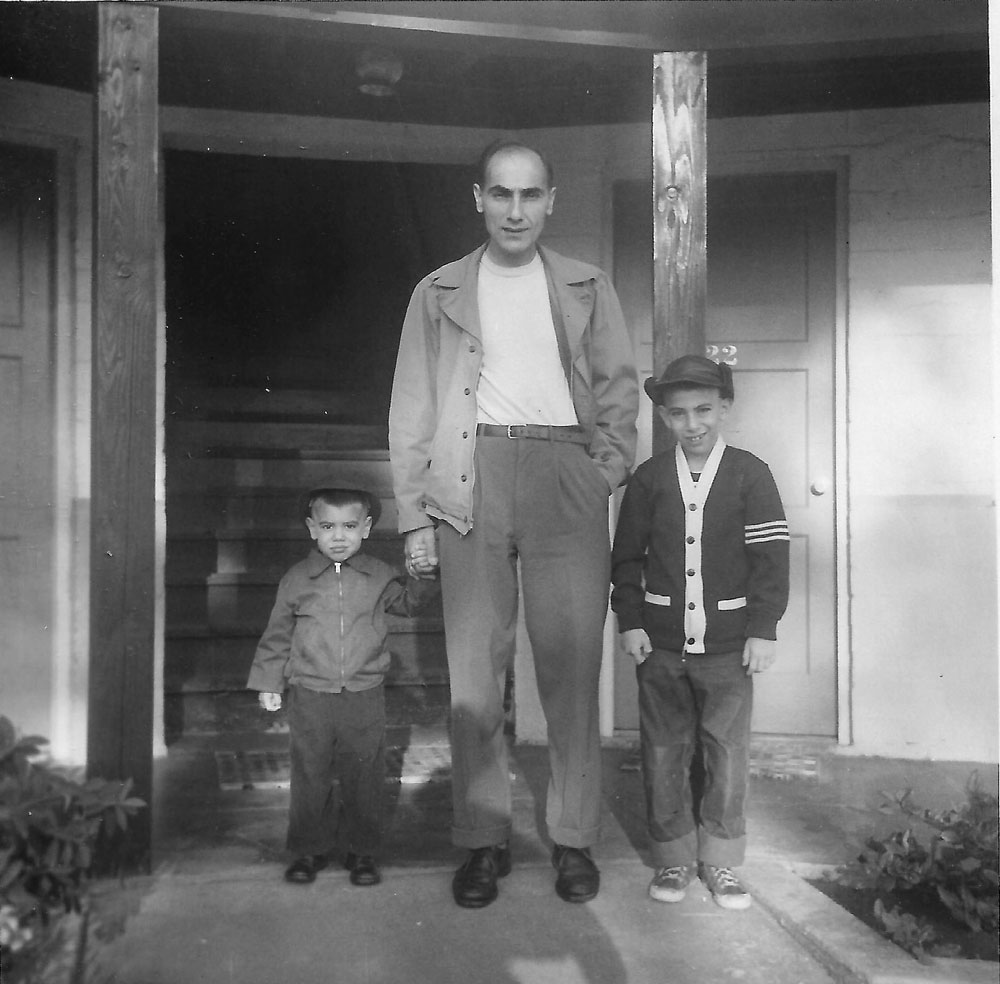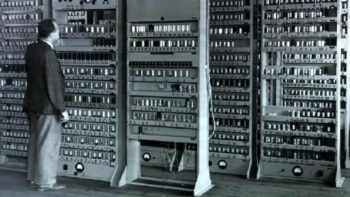Create to Destroy! Earhammer Studios

Greg Wilkinson is an integral part of the Bay Area scene, which is fragmented and has its own scenes but is definitely connected. He looks like a wizard and he is easy to spot — you’ll know who he is when you see him. At his Earhammer Studios, Greg records bands from all the facets of the local scene. I thought I’d interview him for Create to Destroy as he recently recorded a band for my label here in Oakland. Here is the Evil Wizard of Rock…
What bands have you been in?
Current bands: BRAINOIL and DEATHGRAVE; and former bands: LAUDANUM, LANA DAGALES, I WILL KILL YOU FUCKER, PHT, CHRONICLES OF LEMUR MUTATION, JOHN THE BAKER AND THE MALNOURISHED NOTHINGS, GRAVES AT SEA (for a short stint), and many others…

Who has recorded your bands, past and present?
Dan Rathbun, Noah Landis, Kurt Schlegel, Mykee Burnt Ramen, and myself (most recordings I’ve been involved with engineering).
How did you start recording bands?
To make a long story not too unbearably long, in my early teens I had a Magnavox stereo with an instrument jack. I would dub a bass line or something with a mic onto a tape. Then put that cassette into the play side of the tape deck and record that and another layer onto another tape on the recording side. Then switch tapes and add more. Obviously, this sounded pretty much like a wall of crap, but it was enough to pique my interest.
Then, I think it was in ’92, I wound up with a Yamaha 4-track cassette recorder I borrowed from a friend of the family. Soon after, I was hooked and convinced my band at the time (a short-lived band called HOLLOW that did nothing) to purchase a Tascam 4-track. A year later I ended up buying a Tascam 8-track, which I would use to record not only my own bands demos but some friends bands as well (mainly recording in my parents house, friends houses, garages, or whatever we could find).
The machine was used and abused aimlessly recording demos, mainly of bands I was in. This lasted a good grip of years until ’98. At the time, I was in LANA DAGALES, which was a two-piece project. We decided to go to school for recording. We were living in Jackson Street Studios, a defunct rehearsal space in downtown Oakland, at the time and therefore jammed a lot. By this point I was becoming really disenchanted with the limitations of the machine. Accessing better gear would really help LANA DAGALES stay DIY while achieving documentation to our liking. During this time, we tracked demos on the Tascam for EXIT WOUND who was comprised of Jason of STORMCROW and LID TOKER, Rubin of CRUEVO, Jake of BLOWN TO BITS and NEUROTOXICITY and Melony. INSIDIOUS at the time was Jensen of IRON LUNG, Sal of ASUNDER, Jason, Seth of SKAVEN and DESTROY JUDAS and Melony.
In the school, we tracked our second demo, which became our first 7″. In ’99, as an alumni, I was granted access to the school’s facilities and recorded the FLESHIES and BRAINBLOODVOLUME (pre-LAUDANUM). Shortly afterwards the school disappeared, which is a fascinating story in itself. I then began tracking at Burnt Ramen on Mykee’s 1″ Tascam while building up a setup of my own in a painfully slow fashion. Eventually, by the time Earhammer started, there was a decent amount of bands I had the honor of working with.
What was the first band you recorded and where? What equipment was used?
My own band, called GENISORE, I believe was the first actual band I recorded that played shows and made tapes. The aforementioned 4-track and cobbled-together mics of the cheap-to-free variety.
How important is mastering for vinyl?
Extremely!!! Can’t emphasize this enough!
I feel the same. It drives me nuts when things don’t get mastered properly — it sounds like garbage! What advice would you give to someone wanting to start recording their own bands or bands in general?
The awesome news is getting a decent recording setup requires less space and sounds way better than it did in the early ’90s (or even the early ’00s) in the base level market. As the old adage goes, “Just get out there and do it!” Never forget that learning is mostly discovered through failure. Your first recording will most likely be like your first guitar riff. Somewhere between horrible and passabl,e but in no way a waste of time and effort. It’s a building block. Don’t be disappointed if it isn’t a masterpiece. If the recording comes out bad, you will have at least learned something to apply to make a better run the next round. Too many young engineers believe too strongly in post-production, which is dangerous. Crap in will usually turn into crap out. So if it doesn’t sound right before pushing record, there won’t be too much you can do to improve the sound. The best result you can hope for is, “Well, at least it’s not as crappy as before!”
What’s the best way to sound proof a room and get the acoustics right? Does this matter?
It does matter a lot, but there are books about this subject as it is a very complicated issue to tackle. Budget (tuning a room can run thousands and thousands of dollars), available square footage, proper tools, and knowledge are all factors that can get really expensive, especially when done properly. On the slightly affordable side, YouTube has tons of lessons on building diffusers that work pretty well, for DIY communities to help control reflections in your room. Soundproofing requires mass of different materials and space (like building a wall inside a wall is a common example and more high end places even get into suspending rooms).

Any neat tricks you wanna share to capture the right sound?
Hmmm. “Right” I think is a subjective word. What’s “right” to, let’s say, HIS HERO’S GONE vs. what’s right to WALL OF VOODOO or BIG BLACK are all extremely different. Just picture HHIG with BIG BLACK’s production — haha. This is a great point you bring up because I come across people who have strong opinions of other bands and their sound without understanding the context of where they are coming from. I know this ’cause I have been guilty of this as well in past. To answer this question properly, the best trick is to listen to the bands for what they want to go for and translate your skills to capture it. Sometimes what bands may want, may not be accessible with their skill set or the gear on hand. This is where homework becomes important. Going to shows and listening to music as an engineer, musician, and fan can help to put the puzzle together. But getting the sound right before throwing a mic in front of the instrument is crucial. It took many egotistical times in my early years where I overestimated the power of EQ, compression, reverb, etc. Unfortunately, these are tools to “enhance,” not “fix.” Garbage in, garbage out. But in reality, if the vision is to be garbage, and I’m not joking, make the garbage sound like it’s intended before recording it.
With the recent influx of certain bands wanting to sound more noisy, what techniques have you used to accommodate them?
Get good drum sounds. This is crucial. When guitars get blurred out and hiss into static, the drums keep the momentum. I tend to comp a 75-watt speaker with a little bit of greenback or 30-watt speaker for extra teeth on guitar. Hitting the 75 towards the edge can help bring what little definition in the tone while the low watt speaker helps keep the tone nice and rude. Getting a blend of clean and distorted bass, likewise, helps to maintain a full frequency spectrum while keeping it noisy.
What was the last band you recorded?
Well, today I was working on my new project that has no name (rare for me to be tinkering on my own material these days). Normally, I tend to be working with many different bands throughout the week.
Tell us about the community in the Bay Area, any new or old bands we should be paying attention to?
The community is extremely diverse in the underground Bay Area. There are too many bands to name, but currently I can break it down like this — and seriously, this is only scratching the surface (disclaimer, the bands may not classify themselves as I have, this is more just to exemplify the different groups happening in tandem): Raw punk scene include SIDE EFFECTS and STINKWARD. Doom/sludge bands include NOOTHGRUSH, LYCUS, CARDINAL WYRM, ABSTRACTER and BADR VOGU. Hardcore scene include REPLICA, NO STATIK, REIVERS, DEADPRESSURE. PERMANENT RUIN, and RITUAL CONTROL. I would call the next group a misfit scene (due to being too hard to label) blending sludge, metal, crust and hardcore, with bands like NEGATIVE STANDARDS, AUGURS, and HAZZARDS CURE. I hate to mention my own band, but BRAINOIL would fit this category as well. Grind scene include IN DISGUST, BACKSTABBER, YOUR ENEMY and MONTE. Rock ‘n’ roll would include LECHEROUS GAZE, HOT LUNCH, and OWL. Death metal bands include NECROT, VASTUM, CYANIC, APOCRAPHON, and SKOLEX. Ambient scene which is very diverse, spanning from pure noise to black metal, depending on the band, would include AMBER ASYLUM, DISPIRIT, SUTEKH HEXEN, AND WORM OUROBOROS. Death rock scene include ALARIC, 2084 and CRIMSON SCARLET. ’80s style punk include bands like RIGHT, RECKLESS, and STAY SCARED. The cool thing about this is all these bands have probably played many shows together and for sure mingle with each other in one environment or another. We aren’t necessarily talking to each other on the phone every morning, but everyone knows or at least knows of each other. There are other scenes I haven’t mentioned, partially because I haven’t been able to make their shows, but hope to soon. I also wish I could think of more bands right now in the Bay, as there are soooo many good ones out there.
You forgot PIG DNA, but you got most of them! How can we best get in touch with you?
I check email for my personal (evilwizardofrock@gmail.com) and band accounts regularly (only the current ones).
How can we stay up to date?
I am a horrible self-promoter and am in terrible need of updating my discography. I do have a Twitter @LemurMutation and Instagram @lemurmutation, where I tend to sometimes post pics of various stages of sessions.
Any last words?
Thanks for the interview!

